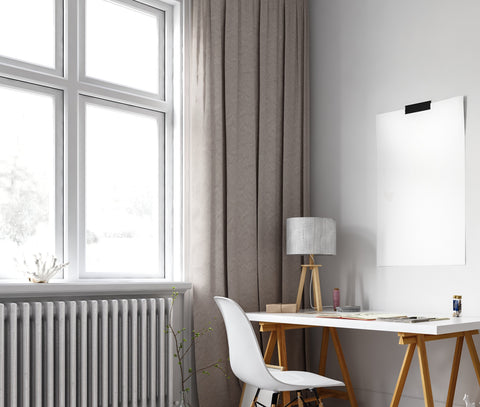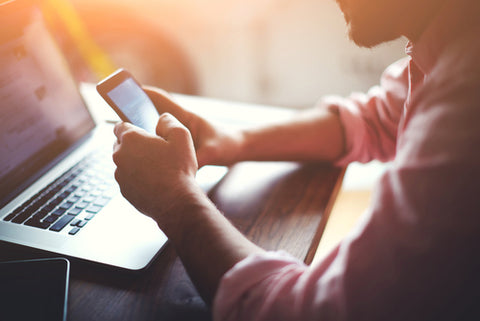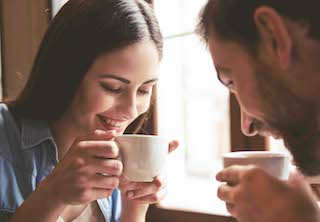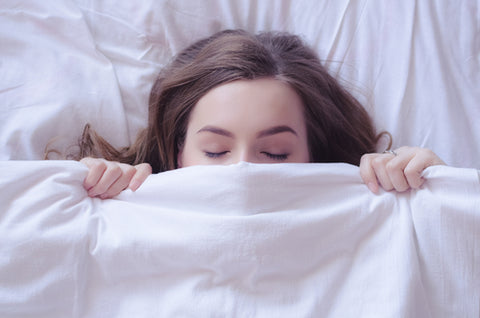Proven Tips for Better Sleep
WANT TO LOSE WEIGHT? GO TO BED. Proven tips to increase the quality and duration of your sleep
WANT TO LOSE WEIGHT? GO TO BED. Proven tips to increase the quality and duration of your sleep

We all like to lounge in bed when it’s time to get up, but getting to bed is a lot harder. Did you know that a good night's sleep is not a luxury, it’s an absolute necessity just as important as regular exercise and a healthy diet. You did know that? Great. Research shows that poor sleep has immediate negative effects on your hormones, exercise performance and brain function. That brain fog you feel the next day? The sluggish movements? Not so healthy for you! For both adults and children, it can also cause weight gain and increase disease risk.
In contrast, good sleep can help control appetite, exercise better and be healthier.
Here are 10 evidence-based tips to fall asleep faster and sleep deeper.
Your body has a natural time-keeping clock known as your circadian rhythm.
It affects your brain, body and hormones, helping you stay awake and telling your body when it's time to sleep.
Natural sunlight or bright light during the day helps keep your circadian rhythm healthy. This improves daytime energy, as well as nighttime sleep quality and duration.
In patients with insomnia, daytime bright light exposure improved sleep quality and duration. It also reduced the time it took to fall asleep by 83%.

Exposure to light during the day is beneficial, but nighttime light exposure has the opposite effect.
Again, this is due to its impact on your circadian rhythm, tricking your brain into thinking it is still daytime. This reduces hormones like melatonin, which help you relax and get deep sleep.
Blue light is the worst in this regard, which is emitted in large amounts from electronic devices like smartphones and computers.
There are several popular methods you can use to reduce nighttime blue light exposure. These include:

We all love our coffee, and though caffeine does have many benefits, consuming it late in the afternoon can have negative effects on your sleep.
When consumed late in the day, the stimulation of your nervous system may stop your body from naturally relaxing at night.
In one study, consuming caffeine up to six hours before bed significantly worsened sleep quality.
Caffeine can stay elevated in the blood for 6–8 hours. Therefore, drinking large amounts of coffee after 3–4 p.m. is not recommended, especially if you are caffeine sensitive or have trouble sleeping.
If you do crave a cup of coffee in the late afternoon or evening, then stick with decaf coffee or herbal tea.

This one may sound like a no-brainer but it bears mentioning. long or irregular napping during the day can negatively affect your sleep.
Sleeping in the daytime can confuse your internal body clock, meaning you may struggle to sleep at night.
In one study, participants actually ended up being more sleepy during the day after taking daytime naps.
However, some studies have shown that those who are used to taking regular daytime naps did not suffer from poor quality or disrupted sleep at night.
If you take regular daytime naps and sleep well, then it's likely not an issue. As always, it depends on the individual.
Exercise is one of the best science-backed ways to improve your sleep and health.
It can enhance all aspects of sleep and has been used to reduce symptoms of insomnia.
One study in the elderly found that exercise nearly halved the amount of time it took to fall asleep and helped them sleep 41 minutes longer at night.
In insomnia patients with severe issues, exercise provided more benefits than most drugs. Exercise reduced time to fall asleep by 55%, total night awake time by 30%, anxiety by 15% and increased total sleep time by 18%.
Although daily exercise is key for a good night's sleep, performing it too late in the day may also cause problems falling asleep for some people.
This is due to the stimulatory effect of exercise, which increases alertness and hormones like epinephrine or adrenaline. However, some studies show no detrimental effects, so it clearly depends on the individual.

No, we did not make this up! It's scientifically proven.
Some people wonder why they always sleep better in a hotel. Well, apart from the relaxing environment, bed quality can also have an effect. Studies found that new bedding can enhance sleep. Additionally, poor-quality bedding can lead to increased lower-back pain.
May we suggest, upgrading to a high quality goose down pillow from Lincove’s line of bedding guaranteed to lull you into blissful sleep.
It’s basic science.
Join our newsletter and be the first to receive new content and promotions.
Recently viewed products...